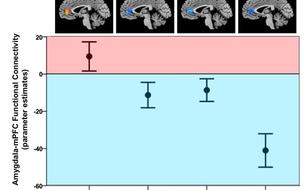
Dylan Gee is an Assistant Professor of Psychology at Yale. Her program of research aims to translate findings from developmental neuroscience to optimize treatments for children and adolescents with anxiety and stress-related disorders. Understanding how key neural circuits mature in typical development and how these processes go awry in atypical development is critical to the identification and treatment of mental health disorders. Dr. Gee’s lab is particularly interested in how early-life stress interacts with sensitive periods of frontolimbic development to increase risk for anxiety disorders. They further seek to identify the neural mechanisms by which evidence-based treatments reduce symptoms and to use neural markers to predict treatment outcome in youth.
Yale’s high performance computing (HPC) infrastructure is an integral part of the lab’s research program. The HPC resources and computing power are essential for running computationally intensive imaging analyses and for access to cutting-edge tools and pipelines to map brain connectivity. Dr. Gee’s lab relies on functional and structural neuroimaging to map developmental changes in frontolimbic circuitry and to characterize the biological state of the developing brain. Ultimately, this knowledge from neuroscience will be used to inform innovative therapies and preventive strategies for anxiety disorders as a function of age, environmental, and genetic factors.